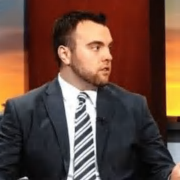2024 NFL Offseason: Lions, Steelers Get It Right; Falcons, Jets Not So Much

We have a problem in the media. We don’t like to be critical.
It’s easier to be positive about everything. That makes sure sources are happy. It makes sure fans are happy. It makes us happier because we don’t have to listen to screaming fans on social media sites deriding us for having the gall to say their 2–15 team stinks.
Well, we’re not going to have that issue in this space.
While there will be plenty of positives, there’s also going to be legitimate negatives. It’s a space to be honest. A space to actually call it as we see it, something that rarely happens for a litany of factors well beyond the few aforementioned examples.
This offseason, we saw some terrific moves, and they’ll be highlighted. We also saw a ton of really dumb stuff. Those will also be spotlighted.
Highlights: Lions and Steelers
On the positive side, the Detroit Lions continue to prove they’re smart.
Detroit entered the offseason on a brutal note. The Lions blew a 24–7 lead at San Francisco in the NFC championship game, falling 34–31 to the 49ers. It was an awful ending to the best campaign in modern franchise history.
Yet general manager Brad Holmes didn’t panic. He bounced back with shrewd moves. He properly saw the pass defense as a huge problem, with the unit ranking 27th in the league. Holmes then traded a third-round pick for star corner Carlton Davis.
Six weeks later, the Lions continued to strengthen their secondary with the selections of Terrion Arnold and Ennis Rakestraw Jr., a pair of corners to play alongside Davis.
Additionally, Detroit also signed veteran guard Kevin Zeitler, making sure the offensive line would stay among the league’s best despite the loss of fellow guard Jonah Jackson in free agency.
And, finally, the Lions ensured continuity. They extended left tackle Penei Sewell, receiver Amon-Ra St. Brown and quarterback Jared Goff. It’s a good bet edge rusher Aidan Hutchinson will get paid next year when he’s eligible for an extension.
The Lions, known for decades as a bumbling disaster, showed how to do business.
Another example of good business this offseason? The Pittsburgh Steelers.
Over the past two years, Pittsburgh natives had to defend Kenny Pickett. Unfortunate.
Pickett was atrocious, throwing 13 touchdowns and 13 interceptions in 24 starts. There was no hope, especially after he was middling at the University of Pittsburgh before having a great season … in his fifth year.
Instead of pretending to be hopeful, the Steelers moved on. And they did so on the cheap.
They signed Russell Wilson to a one-year, veteran-minimum contract while the Denver Broncos remain on the hook for $85 million. They also traded a sixth-round pick for Justin Fields, making a small bet on upside.
Equally as important, they traded Pickett to the Philadelphia Eagles.
Pittsburgh didn’t acquire a great quarterback. Unless Fields has a metamorphosis, it didn’t acquire a long-term answer there, either. The Steelers haven’t fixed the problem, but they’ve made it less of one.
They also traded away receiver Diontae Johnson, who couldn’t be bothered to try in games last year. Watch this and tell me he cares about winning. In return, Pittsburgh landed corner Donte Jackson from the Carolina Panthers, while also adding linebacker Patrick Queen in free agency.
Pittsburgh isn’t a contender. It won’t win the AFC North or the conference. But the Steelers are better, flexible moving forward and in a good position to strike if they find a quarterback in the coming year.
The questionable: Falcons and Jets
Unfortunately, not everyone can be the historically strong-minded Steelers or enjoy the new-found clarity of the Lions.
Just ask the Atlanta Falcons.
Things started out really well for general manager Terry Fontenot this winter. He signed Kirk Cousins to a four-year, $180 million contract. Despite Cousins coming off a torn Achilles and 36 years old, it was more than defensible.
Before last season, Cousins had thrown for at least 25 touchdowns and 4,000 yards in seven of the previous eight years. Compared to Desmond Ridder, Marcus Mariota and Taylor Heinicke, he’s basically Patrick Mahomes.
Signing Cousins was a smart gamble. Worst-case, he doesn’t fully recover and he’s out after two years. Best-case, he snaps back to form and the Falcons have a high-end bridge for at least three and maybe four years.
Then the draft happened.
Atlanta, a team with the No. 8 pick and a massive need at edge rusher, was staring at Alabama’s Dallas Turner. It was the perfect scenario. The card was turned in.
The selection? Michael Penix Jr., quarterback, Washington.
Huh?
Look, this has nothing to do with Penix. His talent is evident. By all indications, he’s a great kid.
This is about how the NFL works.
The Falcons brought in Cousins to be their guy for at least a few seasons. Now, by drafting Penix so high, Cousins is neutered in that locker room before he ever stepped into it.
Teammates, coaches and fans know he’s not the guy. If Cousins struggles early in his return from injury, many will either loudly (fans) or silently (coaches and players) wonder what Penix could be doing with the opportunity.
If Penix plays well in the preseason, there will be calls. If Cousins gets hurt and misses a few games, what happens if Penix plays great in his spot? The former Minnesota Vikings star essentially can’t be released for two years. He’s owed at least $90 million in guarantees. There’s no easy way out of this.
And, if it turns out Penix can’t play, then the Falcons wasted a first-round pick in the dumbest way possible.
Oh, and the rookie contract portion of this is staggering. Part of the reason it’s worthwhile to take a quarterback in the first round is the massive, overwhelming financial advantage you gain by having the most expensive position on a cheap contract.
Even if the Falcons love Penix and move off Cousins after two seasons, his contract lords over them for three years. This means Atlanta doesn’t get any financial benefit at all with Penix … until he’s due for an extension.
Truly stunning work.
Then there’s the New York Jets.
The Jets were derailed last season after only four offensive plays. Why? Because a 40-year-old quarterback tore his Achilles after getting sacked.
The answer to fix that? Sign more veterans with injury histories.
General manager Joe Douglas did exactly that. He signed both left tackle Tyron Smith and receiver Mike Williams to one-year deals. Now, both are short-term investments. Normally, this is good asset management. Take a small swing with potential for big gain.
The problem? Everything with the Jets is short-term because Rodgers is only signed for this season, and there’s no strategy past December.
So as New York goes absolutely all-in for 2024, it’s doing so with a left tackle in Smith who is 33 years old and hasn’t started (or been active for) more than 13 games in a season since 2015.
That’s not a typo.
While Douglas at least provided some insurance with first-round choice Olu Fashanu, that’s still a huge gamble. Fashanu won’t get first-team reps all summer provided Smith is upright. So if the Penn State rookie has to come in, he’s doing it with no chemistry, no experience and in the most important position on the line.
Other than that, great spot to put the kid in.
Meanwhile, Williams will be 30 years old when the season starts and is coming off a torn ACL. He’s also been riddled by injuries throughout his career, such as the broken back that saw his 2022 season end prematurely.
And while Williams is a legitimate talent, he’s also a very unreliable player because of those maladies. But, hey, playing on the MetLife Stadium turf while needing to give starter-level snaps should be a breeze.
Mind you, this was an offseason where the Jets had a plethora of options at receiver. They could have taken a chance on someone such as Marquise Brown, who signed a one-year, $7 million deal with the Kansas City Chiefs. They could have gone the mid-level route with someone such as Gabe Davis or Darnell Mooney, committing to a three-year deal that is essentially two with an option.
Instead, Williams comes into the fold.
Lastly, the Jets also traded for right tackle Morgan Moses. Moses, 33, has been extremely durable throughout his career, not missing a single game over eight consecutive seasons. Then, last year, he missed three. Maybe a blip. Maybe a sign of age.
It’s hard to completely crush Douglas for swapping out the tackles after watching last year’s line hold up like paper in a monsoon, but doing so by acquiring age feels like the set-up for more hype, followed by more disappointment.
